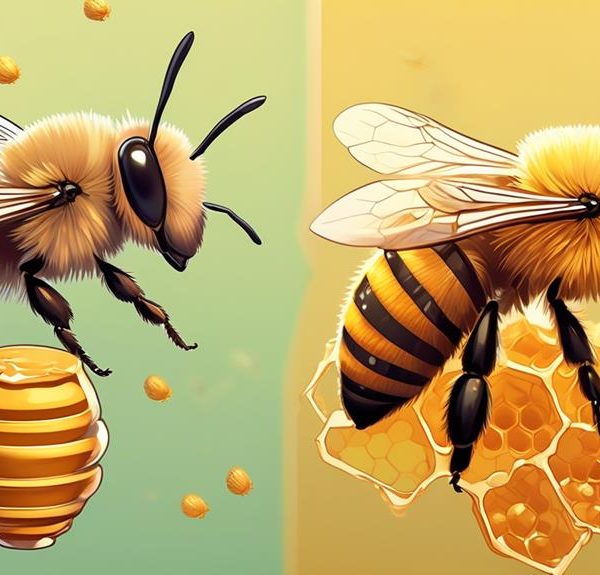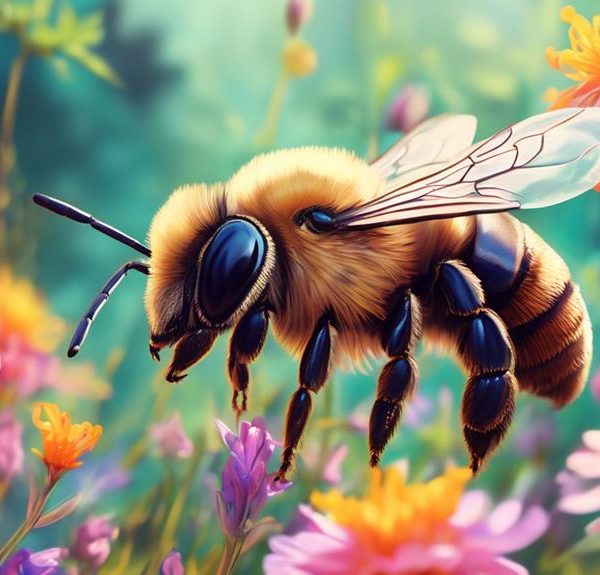Learn whether mason bees, known for their exceptional pollination abilities, inhabit Georgia and the impact they have on local gardening and ecology.
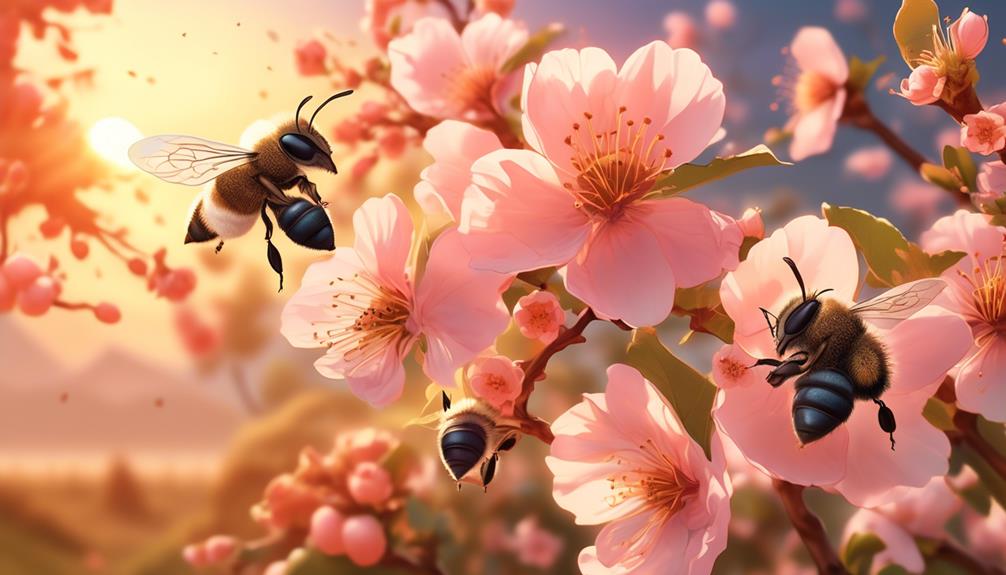
Are Mason Bees in Ga?
Imagine you're tending to your backyard garden in a quiet suburb of Atlanta, Georgia, when you notice a small, dark-colored bee buzzing around your blooming flowers. You're likely to wonder, could this be a mason bee?
Mason bees, known for their solitary nature and excellent pollination skills, are commonly found in various parts of North America. But are they present in Georgia?
This question might seem trivial, but understanding the distribution of these beneficial insects can influence local gardening strategies and contribute to broader ecological knowledge.
Let's explore this further.
Key Takeaways
- Mason bees are solitary insects that play a crucial role in Georgia's ecosystem as expert pollinators of native plants, fruits, and vegetables.
- They prefer nesting sites such as small holes or cracks in trees or buildings and adapt well to various environments in Georgia.
- Mason bees are more efficient pollinators than honeybees and contribute to the health and diversity of Georgia's flora.
- To attract Mason bees, set up a bee house in a sunny spot, plant native flowers in the garden, and avoid using pesticides.
Understanding Mason Bees
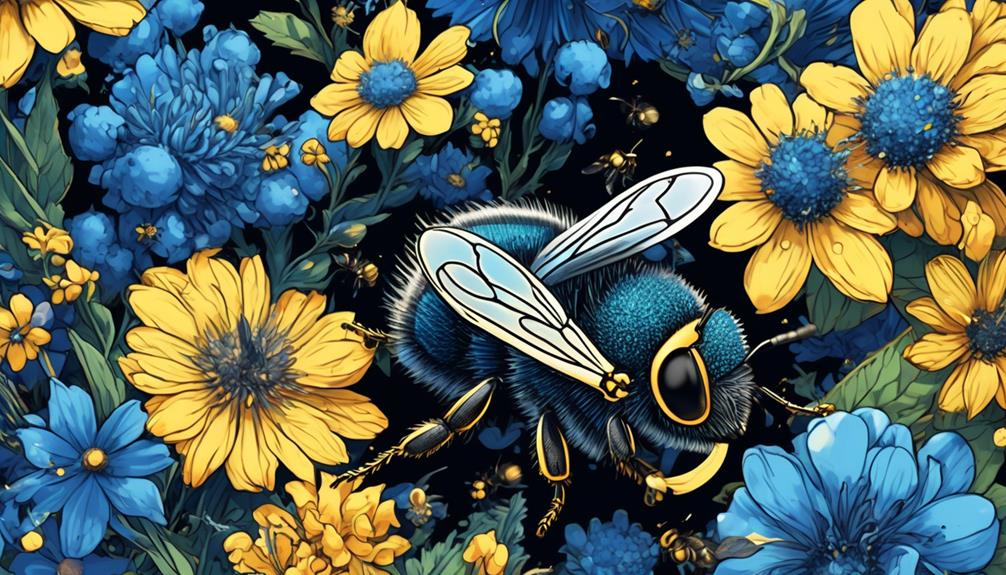
To truly appreciate the role of Mason Bees in Georgia's ecosystem, you need to understand their unique behavior, lifecycle, and benefits they bring to our environment.
Unlike honeybees, Mason Bees are solitary insects. They don't live in hives, but instead lay their eggs in small holes or cracks, filling them with nectar and pollen for the larvae to feast on once they hatch.
Their lifecycle is fascinating. In the spring, adult females emerge, mate, and begin their solitary work of pollination and nest building. By summer, the next generation of Mason Bees is fully developed, patiently waiting within their cocoons to emerge the following spring.
As for their benefits, they're superior pollinators. They carry pollen on their belly, increasing the chances of cross-pollination. They aren't aggressive, reducing the risk of stings. Plus, they're native to North America, making them a vital component of Georgia's ecosystem.
Understanding Mason Bees won't only bring you closer to nature, but it'll also make you appreciate how these small creatures significantly contribute to the health of our environment. Remember, every bee counts, especially the industrious Mason Bee.
Habitat Preferences of Mason Bees
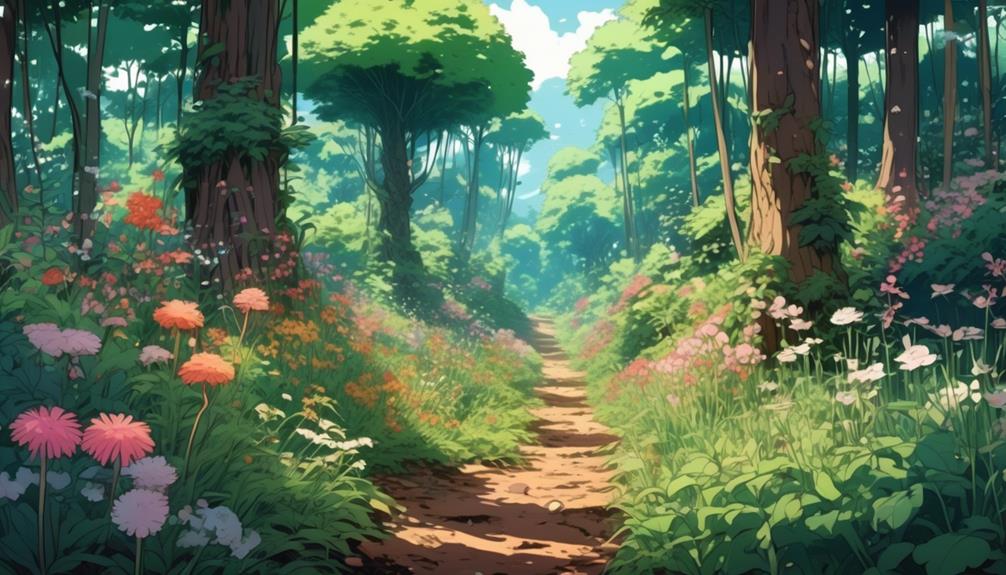
When considering the best habitats for Mason Bees, you'll find they're drawn to locations that provide an abundance of flowers for nectar and pollen, as well as suitable nesting sites such as small holes or cracks in trees, buildings, or even specially designed bee houses.
In Georgia, these industrious insects adapt well to various environments, from forests to urban gardens. Keep in mind, they prefer sunny locations with wind protection. They're not overly picky about the type of flowers, but they do favor native plant species.
Here's a simple table to illustrate their basic habitat preferences:
Habitat Feature | Mason Bee Preference |
|---|---|
Sun Exposure | Sunny |
Wind Exposure | Protected |
Nesting Sites | Small Holes/Cracks |
Flower Types | Native Plants |
Environment | Diverse |
Mason Bees in Georgia's Ecosystem
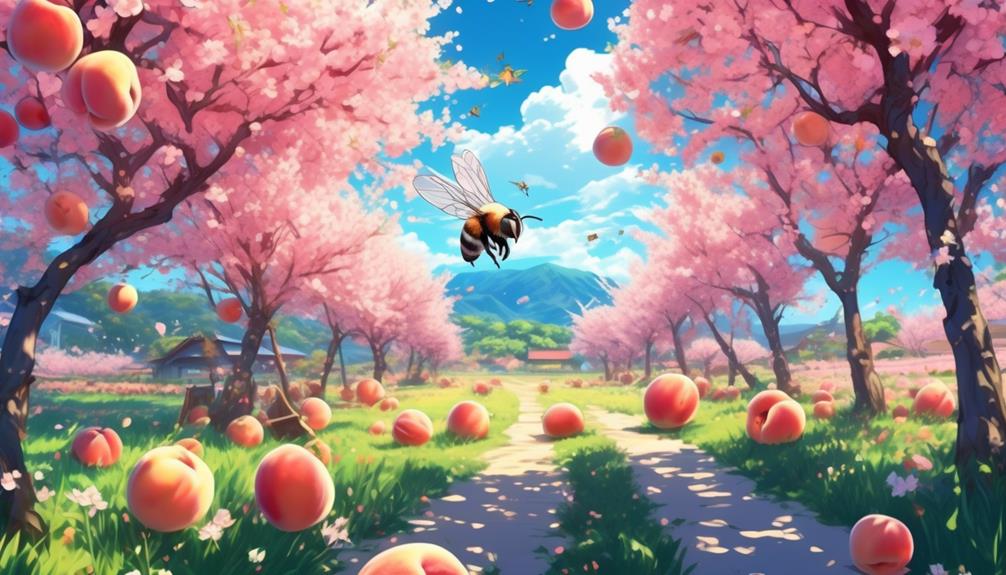
In the grand tapestry of Georgia's ecosystem, you'll find Mason Bees playing a crucial and often underappreciated role. These industrious pollinators aren't just buzzing around aimlessly; they're working tirelessly to keep Georgia's flora thriving.
You see, Mason Bees, unlike honeybees or bumblebees, are solitary creatures. They don't live in hives or colonies but rather in individual nests, often within holes in wood or hollow stems. Despite their solitary nature, their contribution to the ecosystem is immense.
As expert pollinators, they're essential for the pollination of Georgia's native plants, fruits, and vegetables. They're also a vital food source for various birds and insects. But here's the kicker: Mason Bees are more efficient pollinators than honeybees. In fact, it's estimated that it takes only 250 Mason Bees to pollinate an acre of apples, compared to 20,000 honeybees.
How to Attract Mason Bees
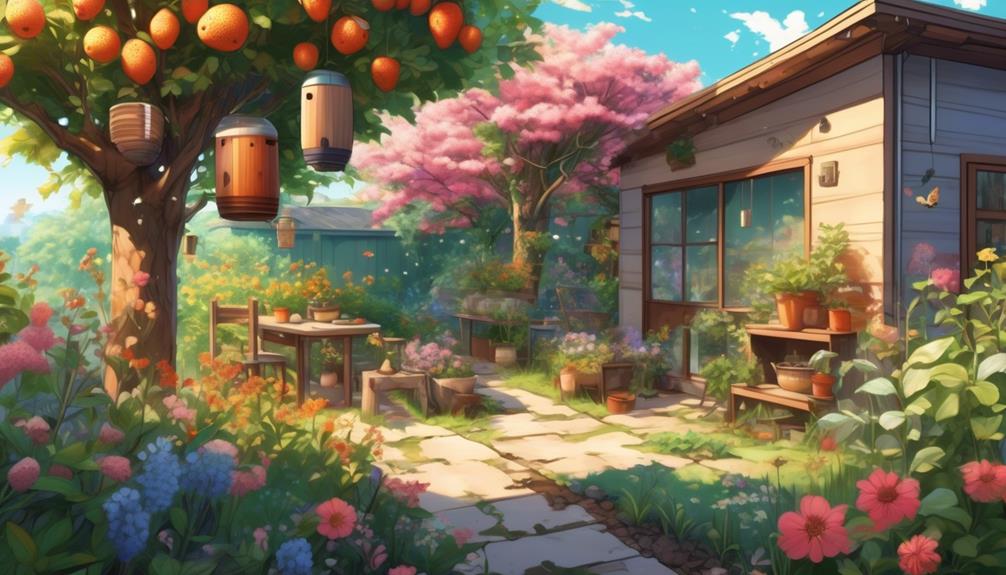
Drawing Mason Bees into your Georgia garden isn't as complicated as you might think, and it brings with it the benefit of efficient pollination. These solitary creatures prefer environments that mimic their natural habitats, so creating a welcoming space for them requires some knowledge and a bit of effort.
Start by setting up a bee house. You can purchase one online or make your own using untreated wood and hollow stems. Position your bee house in a sunny, south-facing spot. Mason bees are early risers and prefer the morning sunlight.
Plant native flowers in your garden. Mason bees are generalists, meaning they'll pollinate a wide variety of plants. They're especially attracted to fruit trees and flowers that bloom in early spring. Be sure to avoid pesticides; these chemicals can harm bees and other pollinators.
Threats Faced by Georgia's Mason Bees

Despite their importance in the ecosystem, Georgia's Mason bees face a myriad of threats that can potentially endanger their population. You may not realize it, but these little workers are in constant battle against various challenges, both natural and man-made.
Natural predators are one of the prime threats. Birds, wasps, and spiders are known to prey on Mason bees. Worse still, there's the dreaded Varroa mite, a parasite that sucks the life out of these bees, leading to widespread colony collapse.
Human activities also pose significant risk. Pesticides, particularly neonicotinoids, are lethal to Mason bees. They're often exposed when foraging, leading to weakened immune systems and even death. Loss of habitat due to urban development is another issue. Mason bees need hollow reeds or tubes for nesting, and when these are scarce, it's hard for them to survive.
Climate change is an emerging threat too. Unpredictable weather patterns can disrupt their lifecycle, as they rely on specific seasons for mating and nesting.
In essence, the survival of Mason bees in Georgia is a delicate balance, constantly threatened by myriad factors. It's incumbent upon us to understand these threats and work towards their conservation.
Conclusion
Indeed, Mason bees are part of Georgia's rich ecosystem. They're crucial pollinators, preferring habitats with abundant flowers.
To attract them to your garden, ensure you provide them with nesting materials and food sources. However, they face threats, including habitat loss and pesticides use.
By understanding and supporting these friendly bees, you're contributing to Georgia's biodiversity and overall environmental health.
So, why not welcome these hardworking neighbors into your garden today?

